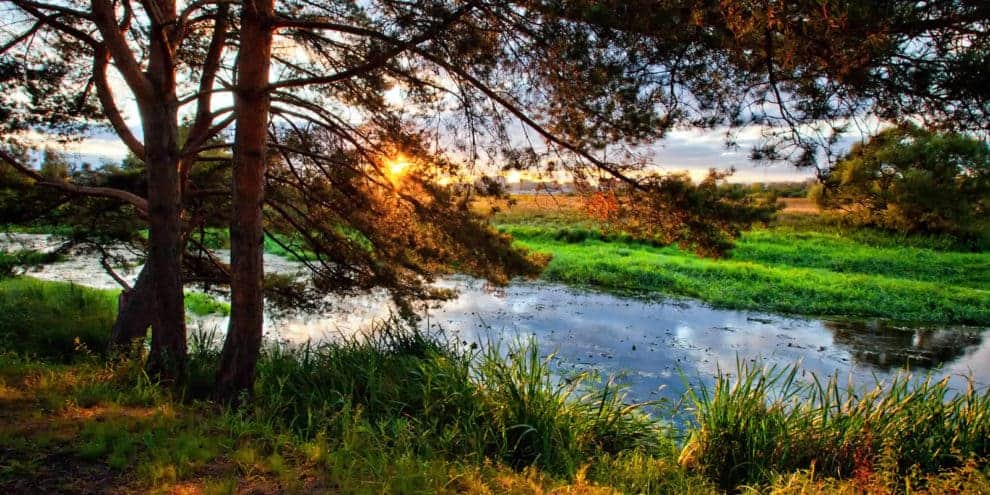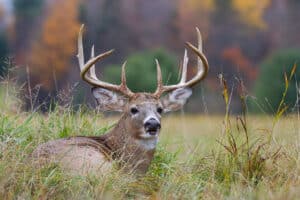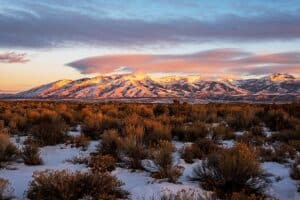Good hunting leases might be one of the most difficult assets to find in the Southeast. Almost daily I get a call or message from a local hunter who is working hard to find a good property to lease. I also hear the stories from hunters whose leased land hasn’t turned out to be what they had hoped: the owner clearcut the timber, the lease rates keep going up, or the land gets sold and the lease cancelled, among other complaints. Whenever I bring up owning the land that you hunt, the suggestion is usually met with a reply like “I’d love to! But that down payment. And those monthly payments.” I hear you, but let me work through a real-life example with you of a friend of mine that recently bought some land whose annual mortgage payments are almost equal to what he would have spent annually on a lease.
The key to making this method work is simple: spread the cost of the land over a few people. The greatest challenge most people will have is finding 3-4 trustworthy friends that have the desire and means to partner up for a land purchase. But if you’re lucky enough to have those strong relationships, keep reading for how little your cost can actually be, as well as advice on how to structure the purchase to protect and to be fair to everyone involved.
Jim was like many of the people that I get calls from: looking hard for a lease and frustrated by what seemed like high prices, overcrowded hunt clubs, and not-so-promising future land management scenarios. Quality smaller properties (approx. 100 acres) were going for up to $4,000 per year, and were almost impossible to find close to Tallahassee. At the same time three friends from work were also looking, and each shared the same frustrations. One day Jim ran across a property for sale: 115 acres for $240,000. It was a great sportsman property – it had fields, woods, and a pond – located in an area known for good game flow only 45 minutes from home. He knew there was no way he could afford (nor his wife allow) a purchase of that size, but after running some quick numbers he realized that if he could get his three friends in on the purchase, they’d each be spending about what it would cost if they leased individually every year. The trade-off would be that they would have to share the property, but instead of throwing money away on a lease they would be building equity in a land investment. And they could spread the load of improving the property among the four of them.
The numbers looked like this:
At a purchase price of $240,000 financed for 20 years at 5%, a single buyer would have to put $48,000 down (at a 20% down payment), and then shoulder a monthly payment of $1,267. But if all four of them went in together, the down payment per person was only $12,000, and monthly payments were $317, or only $3,804 per year – less than some of the lease land they were looking at.
Jim and his friends decided the trade-offs were worth it for the opportunity to own their own property and do whatever they want with it, all while growing a land investment. They’ve actually found that it has strengthened those friendships as they’ve partnered to increase the quality of the game on the land, and made the place something greater than it was. 115 acres has been plenty of hunting space for them this season – they agree that you don’t really need hundreds of acres to have a good season, just the right property and group of people.
Like any partnership, the success of a venture is built on trust between the parties and a good legal structure that protects everyone involved. For land purchases of this nature, many professionals recommend that the partners create a Limited Liability Company (LLC) to both protect the individuals involved and to clearly outline the ownership interests and responsibilities of each member. LLCs can be easily created online these days, but for those unfamiliar with the company structure and process, it would be prudent to seek professional advice and assistance.
To recap: if you partner with a few friends, you can invest in hunting land for about the same annual cost as a lease. There are trade-offs to this arrangement, but it works for the right group of people. The key to success is finding the right partners, finding the right property, and creating the right legal structure to protect everyone involved. Contact your local Land Agent today to talk more about how to make this purchase method work for you and what properties are currently on the market in your area.
This content may not be used or reproduced in any manner whatsoever, in part or in whole, without written permission of LANDTHINK. Use of this content without permission is a violation of federal copyright law. The articles, posts, comments, opinions and information provided by LANDTHINK are for informational and research purposes only and DOES NOT substitute or coincide with the advice of an attorney, accountant, real estate broker or any other licensed real estate professional. LANDTHINK strongly advises visitors and readers to seek their own professional guidance and advice related to buying, investing in or selling real estate.










Love this article and love the outdoors. We’ve seen similar transactions going for timberland and other hunting properties in the south east. What would you say is the minimum acreage necessary for a hunting tract?
Jesse,
Thanks for the comment. The answer to your question is “it depends.” I’ve known guys that have 5 acres that they hunt just fine – but that 5 acres borders thousands of acres of conservation land that doesn’t get hunted. Surrounding landowners are one of the biggest determinants of hunting quality when you are looking at smaller acreages. Even at 100 acres, you need land that is in an area with good game quality with neighbors that practice good stewardship of their lands. The smaller your property, the more important property features are as well. You have less room to attract game to your land and keep it there, so you need to make sure you make the most of it. Diversity in land type (woods, fields, ponds, creeks, etc.) is important, as well as good land management. Ultimately, you can hunt any size acreage if it’s the right acreage – and that’s the challenge. I’d enjoy hearing some wisdom from other Land Agents and hunters – this is an interesting question and I’m sure there are lots of different experiences out there.
So if those same 4 guys decided to go in on a hunting lease together….the annual cost would be about $1000 with zero down payment?
Love the idea of buying my own land and helping my customers realize those dreams. However, this article is just apples and watermelons.
Sean,
Thanks for the comment.
If they could have found a comparable lease, then sure, that would have worked. I suppose they could have even gone up to $16,000 per year on a lease if they wanted to. Part of the problem is that around here good lease properties are hard to come by. My friend had a budget for a hunt lease – he was able to buy into a property and stay within that budget, gaining the advantages of land ownership in the process. Obviously if someone can find a great deal on a hunt lease and they’d rather lease than own, then go for it – each option has trade-offs. The point of the article is to illustrate that there are ownership options available that are within some people’s current hunt lease budgets.